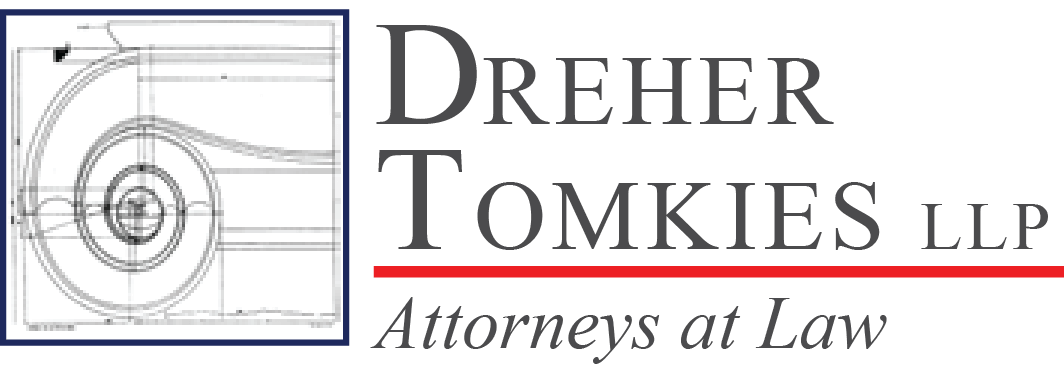On December 23, 2020, the New York Governor signed the bill that requires specific disclosures be provided in certain commercial financing transactions. See our prior ALERTS dated Dec. 14, 2020 and Sept. 15, 2020 for details of the law’s requirements. Financial institutions are exempt from the disclosure requirements…Read More
Year: 2020
THE CFPB RELEASES PART TWO OF THE FEDERAL DEBT COLLECTION RULE
On December 18th, the Consumer Financial Protection Bureau (“CFPB”) released part two of its federal debt collection rule (known as “Regulation F,” to be codified at 12 C.F.R. Part 1006) under the federal Fair Debt Collection Practices Act (“FDCPA”). Part two focuses on debt validation information, time-barred debts, certain credit reporting in collections and deceased consumers. Part two of the final rule becomes effective on the same date as part one of the final rule — November 30, 2021…Read More
MULTIPLE CRYPTOCURRENCY COMPANIES APPLY FOR OCC BANK CHARTER
Over the past month, three cryptocurrency companies filed for a bank charter with the Office of the Comptroller of the Currency (“OCC”).
In November, Anchorage, a digital asset custodian, filed an application for a national trust charter with the OCC. Anchorage’s General Counsel announced in a statement that a national bank charter would be significant for the following reasons: (i) it would put Anchorage on par with other national banks from a regulator perspective, making it easier for traditional banks….Read More
DEBT BUYER SETTLES ENFORCEMENT ACTION REGARDING UNLICENSED ACTIVITIES
The Consumer Financial Protection Bureau (“CFPB”) has entered into a consent order with a debt buyer to resolve allegations that the debt buyer violated the federal Fair Debt Collection Practices Act (“FDCPA”) and Section 1031 of the Consumer Financial Protection Act (“CFPA”) by sending demand letters and filing collection lawsuits through law firms without the proper licenses in ….Read More
NEW YORK LEGISLATURE FINALLY DELIVERS COMMERCIAL FINANCING DISCLOSURE BILL TO GOVERNOR
On December 11, 2020, the New York legislature finally delivered a bill that, similar to California, requires that specific disclosures be provided in certain commercial financing transactions. The New York bill is strikingly similar to, but does differ from, the California commercial disclosure bill as the New York bill….Read More
FOURTH SET OF MODIFICATIONS RELEASED FOR CA-CCPA REGULATIONS
On December 10, 2020, the California Attorney General’s Office released a fourth set of proposed modifications made to the regulations regarding the California Consumer Privacy Act (“CCPA”). These modifications build upon the third draft set of modifications issued on October 12, 2020….Read More
CFPB GRANTS SAFE HARBOR TO BANK OF AMERICA FOR SMALL DOLLAR LOAN PROGRAM
The CFPB has approved Bank of America’s no action letter application for its new short-term, payday loan program. Bank of America is the first major bank to receive such a letter. The application was based on the No-Action Letter Template issued by the CFPB on May 22, 2020…Read More
CALIFORNIANS PASS NEW PRIVACY INITIATIVE
On Election Day, Californians voted in favor of Proposition 24, the California Privacy Rights and Enforcement Act of 2020 (“CPRA”,a/k/a “CCPA 2.0”). See our prior ALERTS of July 7, 2020, May 6,
2020 and September 26, 2019…Read More
THE CFPB RELEASES PART ONE OF THE FINAL DEBT COLLECTION RULE
On October 30th, the Consumer Financial Protection Bureau (“CFPB”) released part one of its final debt collection rule (known as Regulation F, to be codified at 12 C.F.R. Part 1006) under the federal
Fair Debt Collection Practices Act (“FDCPA”)…Read More
THIRD SET OF MODIFICATIONS RELEASED FOR CA-CCPA REGULATIONS
Only two months after the California Consumer Privacy Act (“CCPA”) implementing regulations went into effect, the California Attorney General’s Office has released a third set of proposed modifications. When the final CCPA Regulations went into effect on August 14, 2020, a handful of requirements were removed during the Office of Administrative Law’s review process. See our prior ALERT dated Aug. 14, 2020. Among the provisions that were removed were the requirements that (i) a business must provide notice to the consumer by an offline method and (ii) the method for submitting requests to opt-out must be easy for consumers to execute and require minimal steps to allow for opt-out.
In response to the removal of such provisions, the proposed modifications make the following changes:
- Requiring businesses that collect personal information offline must provide notice by an offline method. The proposed modifications include two illustrative examples of providing “offline” notice of right to opt-out;
- Requiring that a business’s method for submitting requests to opt-out must be easy for consumers to execute and providing five examples of how the method for submitting such requests should appear to consumers; and
- Allowing businesses to require that an authorized agent must provide proof to the business that the consumer gave the agent signed permission to submit the request.
The Attorney General’s office will accept written comments regarding the proposed changes until October 28, 2020. On November 3, 2020, Californians will vote on the California Privacy Rights Act ballot initiative, also known as “CCPA 2.0.” If the CCPA 2.0 receives a majority of “yes” votes, then it will become law and expand and amend the CCPA creating new consumer privacy rights, privacy requirements and enforcement mechanisms. See our prior ALERT dated July 7, 2020.
We continue to monitor updates on the CCPA. If you have any questions regarding the CCPA or need help developing a compliance program that complies with the CCPA, please let us know.

